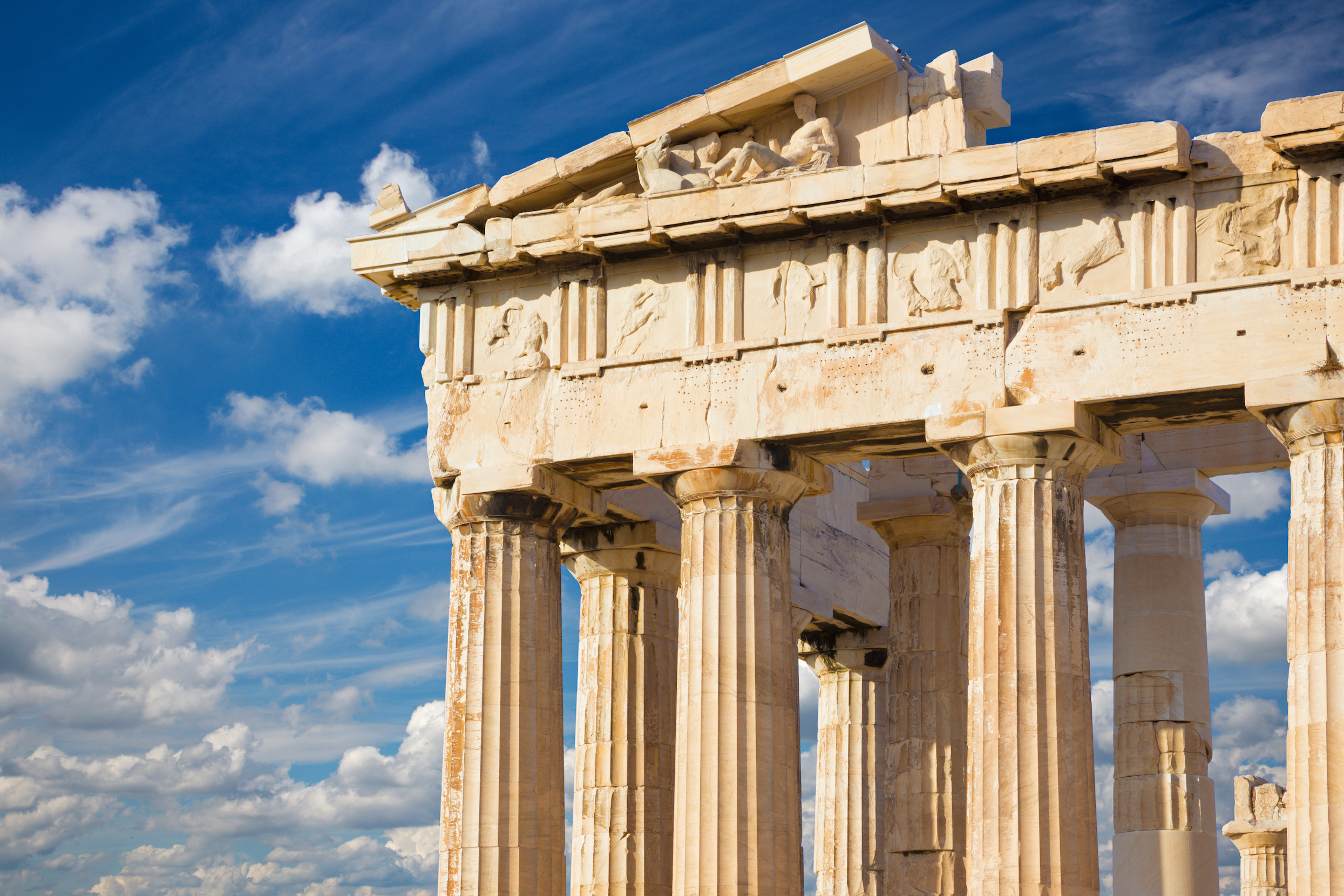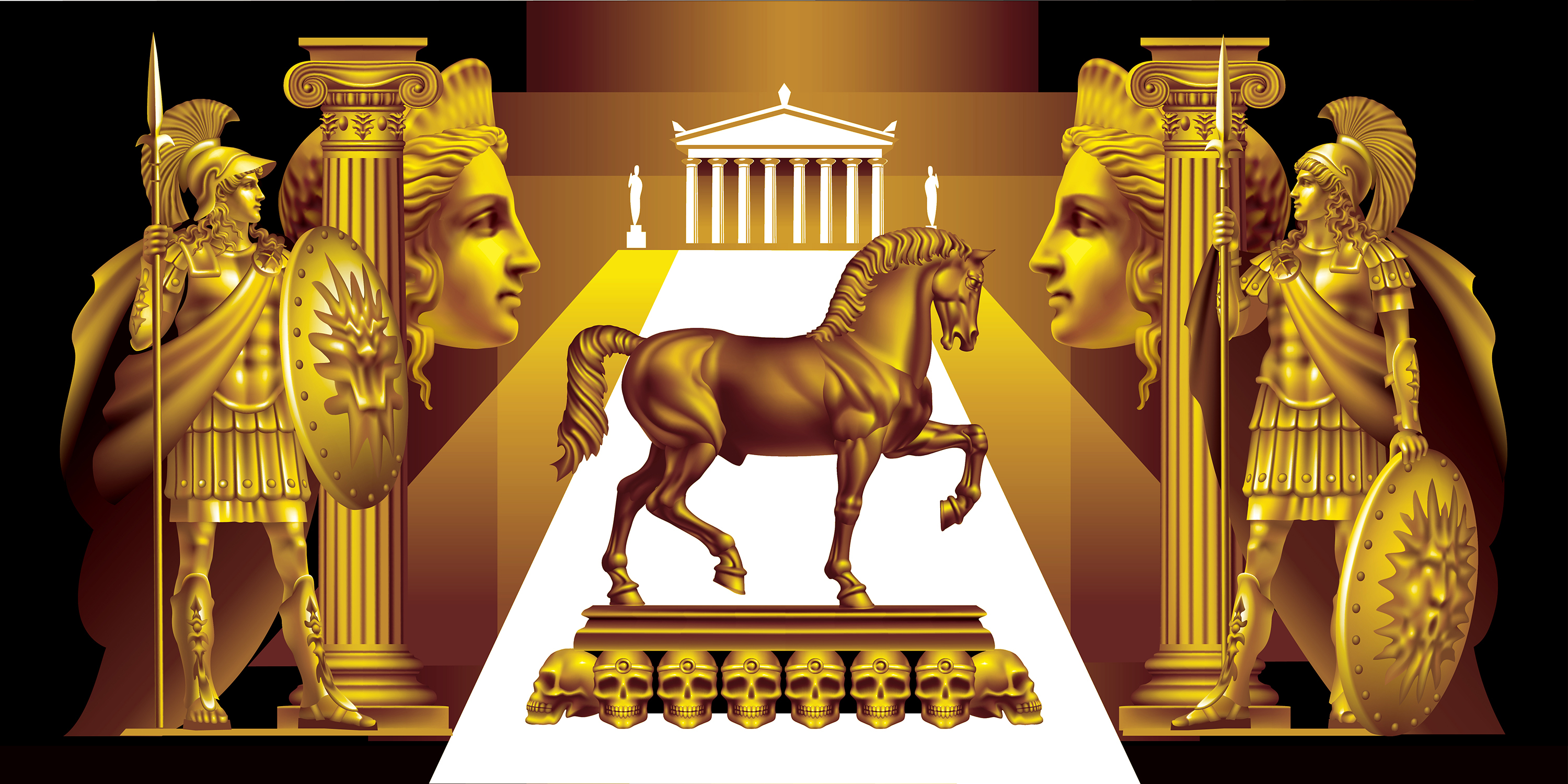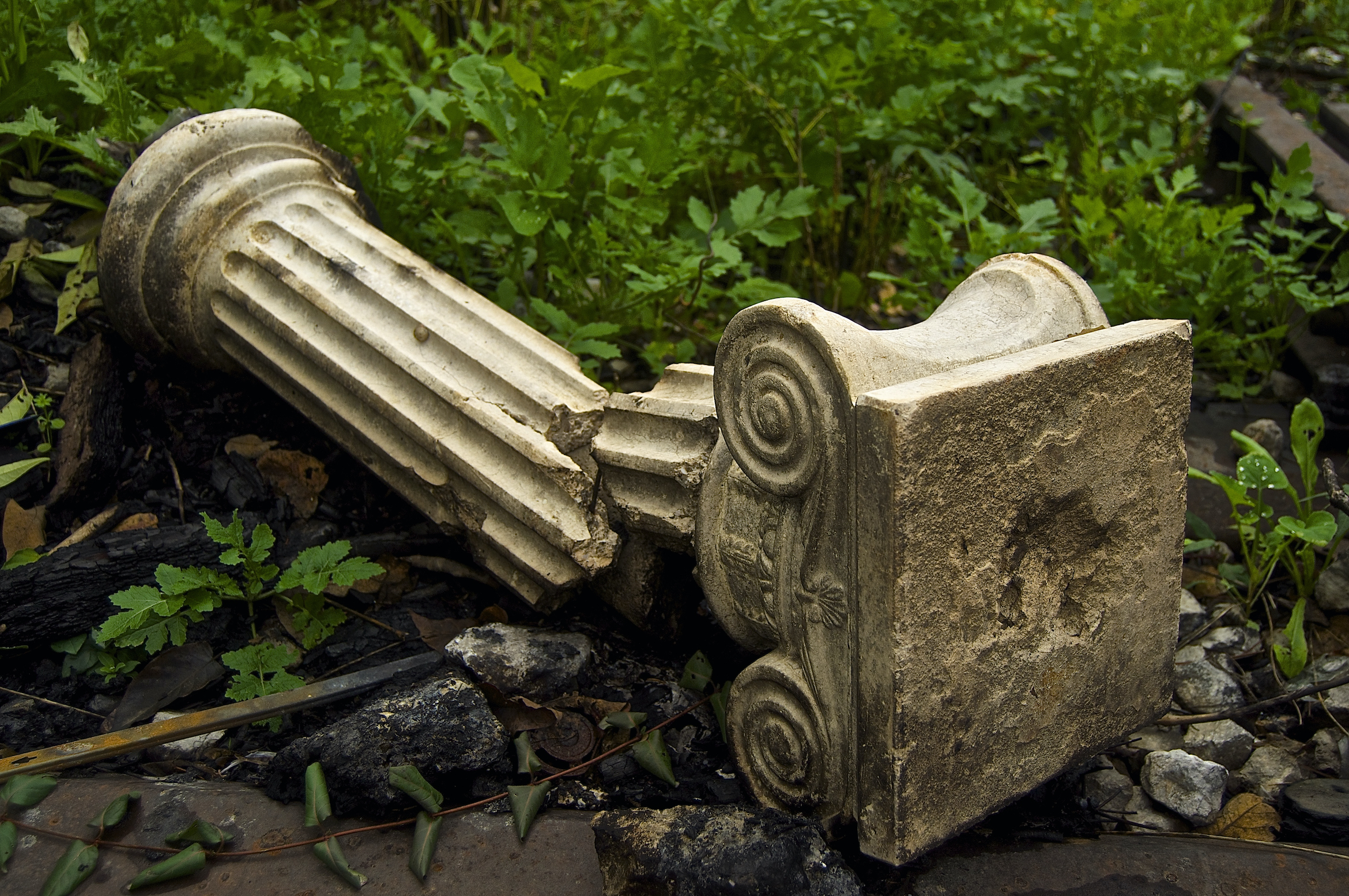The Greek miracle, or the Athenian miracle, is the notion that there was an extraordinary big bang of human civilisation that took place in ancient Greece or, more specifically, in classical Athens. The idea of a Greek miracle is that in ancient Greece, there was a confluence of intellectuals, of forces – or maybe there was something wonderful in the water – that led to this incredible birth of many institutions, literary genres and different ways of looking at the world that the European West continues to celebrate today. This was the time of the flowering of architecture, of tragedy, comedy, democracy, philosophy, mathematics, empiricism and rationality. All of these ideas crystallised, particularly in the 5th century in Athens, up at the Acropolis where the Athenians held their democratic assemblies.
The Greek miracle and the invention of national discourse in Ancient Greece
Associate Professor of Classics
- The Athenians documented their life and society extensively, developing a coherent set of national discourses in which they celebrated their exceptionalism.
- Athens continues to exert a soft power over the world even today, 2,500 years since they first wielded this power.
- The world understands Greece’s current economic circumstances in the context of its decadence and its fall from glory.
Big bang of human civilisation

Photo by Reneta Sedmakova
A miracle in the midst of imperialism
We know that the Athenians were slave owners. They did not extend franchise in any way to women. They seem to have been one of the most restrictive societies in all of ancient Greece when it came to women, who were discouraged from ever showing their faces outside the house. This leaves us asking the question: why have we been so eager to swallow, hook, line and sinker, the notion that there was such an incredible miracle at that time in Athenian society? I think the answer to that is probably simpler than one might guess, which is because the Athenians told us that their society was miraculous. The Athenians were one of the first societies to document themselves so extensively, to develop a coherent, comprehensive set of national discourses in which they laid out the terms of their exceptionalism.
They recorded everything from Pericles’ Funeral Oration for the dead and who died in the first year of the Peloponnesian War, to the great celebration of Athenian society and even certain parts of Greek tragedies. They recorded the nationalist tropes that were rehearsed in Athenian comedy, and even as that comedy lampooned the most famous political figures, the Athenians left an extraordinary written record that completely celebrated their society.
These written records of ancient Greek society are deeply tied to the standing buildings, the ruins, the architecture of Athens that we still see today. So, I think we have this notion that there was such an extraordinary Greek miracle, or Athenian miracle, largely because of this unbelievably impressive choreography that the Athenians managed between their public buildings, their public literature and the modes of governance that they exported elsewhere in the Greek world. These stories that they narrated about themselves became the real vehicle of their empire. We often forget that the Athenians had an empire that they were able to impress upon other societies at that time.
Celebrating the extraordinariness of Greece
The most important document of the Athenian miracle – or the propaganda machine, as I would call it – is Pericles’ Funeral Oration. In these speeches, a justification was made for why somebody would want to die for Athens in the first place. Athens engaged in so many wars throughout history. It was a society constantly at war, imperial expansion and other kinds of conflicts. In order to encourage people to truly give their all in the military, there needed to be a cultural apparatus, which suggested that it was the absolutely best thing to do.
‘Why would you want to give your life for Athens? It is because Athens is the greatest city in the land.’ That is essentially what Pericles says in the funeral oration that Thucydides records in The History of the Peloponnesian War. Pericles lays out why Athens is a city like no other, why it is the envy of the world for its democratic institutions, its commitment to learning, its geopolitical advantages and its ports, where goods from all over the world come into Athens. He lays out one by one the fantasy of why this city is so extraordinary – that if you are Athenian, you should be very happy, and indeed honoured, to die for it, and if you are a foreigner who happens to be in attendance, you should really be jealous that you are not an Athenian.
A rose-tinted vision of Athens

Photo by Babin
Athens rose to power within the Greek world in the first part of the 5th century after the Greeks defeated the Persians in the Persian wars. There are different ways of understanding what had happened during and after those wars. However, the Athenians, through the imperial building programs that they launched in the aftermath of the Persian War (whose remains we still see today), through their tragedy, poetry and public poetry competitions, created a strong narrative, which claimed that they had been responsible for leading the Greek forces to victory in the Persian wars. The narrative said that the Greeks defended all of the Greek world from this threat from the East.
With Athens having established its hegemonic virtues – its absolute hegemonic status – it was then able to use its military might to send a strong and compelling cultural message about Greeks’ achievements in the theatre of philosophy and so on. This strong message was packaged into this notion of Athenian military and political dominance within the Greek world.
The Romans played a role
This cultural message coming out of Athens was easily transmitted and went on to be picked up by the Romans. If you were an elite Roman, it was regular practice to send your kid to study abroad in Athens for a year. Roman emperors loved to be associated with Athens. They became patrons of the Greek buildings. They built new buildings in Athens because it had become a kind of museum of the glory that had been Greece. After this, so many ideas that the European West had about itself and its own origin stories were steered by the Romans, who had placed the Greeks on this ambivalent pedestal of sorts.
On the one hand, the Greeks were highly accomplished culturally, but they had failed in creating an enduring military might. Still, the Roman notion of the glory of Athens got transmitted into the European Western intellectual tradition.
Rediscovery of Greek culture
I think that in some ways, the rediscovery of Greek culture happened almost by accident; it was a confluence of coincidences. In the late 18th century, many gentlemen from Western Europe, from Britain in particular, embarked on a grand tour as a rite of passage, a sort of last hurrah of their youth. Their travel of the continent was also meant to be educational.
At the very end of the 18th century, the Napoleonic Wars effectively closed off Western Europe and Italy to these travellers, which meant that their itineraries were largely rerouted around Italy into Greece. This then sent these gentlemen travellers into Greece, into what at the time was known as the Levant, or what they thought of as biblical lands.
These travellers, through their experiences of Greece, learned about the Greek independence movement, German idealism, Hellenism, the romanticisation of humanity’s early childhood in Greece and the era of revolutions. The travellers with first-hand access to these ideas from Greece brought them back to the United States, shaping things like taste for the decorative arts and Greek revival architecture. All of this happened in the decades from the late 18th century and into the early 19th century. This exchange gave a notion of an elevated, self-contained miracle that had been this moment of ancient Greece.
A powerful cultural import
What’s truly extraordinary about ancient Greece, the ancient Athenians, is that in a way, even now, 2,500 years later, the ancient Athenians still have a soft power that they exert over us, so I think that that is a really extraordinary phenomenon, one very worthy of study. Another reason that I think that the Greek Miracle, or, maybe better, that moment in Athens, in ancient Greece, in the Mediterranean more widely – because this was the product of much more mobility and diversity than is usually recognised – is all worthy of study in large part because we have what is an extraordinarily large body of writings that comes from that moment. It is just better documented than other such early moments in history.
The Athenians were known as being what’s often called the documentary society. They kept enormous amounts of records of nearly everything that you could possibly think of. We really do have this extraordinarily large archive of materials to consider, which makes this moment worthy of study. These records have proved so generative still today as political theorists keep reinventing new uses or angles on this ancient corpus of material.
The Miracle in contemporary Greece

Photo by Deltami
This year marks the bicentennial of the outbreak of the Greek War of Independence, and certainly this notion that there had once been a Greek Miracle played heavily into the way in which support was gathered for the Greek War of Independence – European support and American support. But things are not always what they seem. Even in this apparently idealistic case, in which ancient Greek values are promoted, things have gone wrong.
The London Greek Society was formed in the 1820s to fund and support the Greek War of Independence, but the society brokered extremely harsh loans for the fledgling Greek state, which contributed to getting Greece into this cycle of debt that it still seems to be caught up in today. The Greek people have laboured under the notion that there is some Greek Miracle to which they are constantly being held accountable – for which they are still responsible, in some ways – but that is an impossible expectation.
We know that this whole notion of the Greek Miracle is largely a collective fantasy of the West. Then to take actual living people, a modern nation, and ask them to live up to those standards is just asking for disappointment and much, much worse. This is what we saw play out when the economic crisis in Greece was in the headlines, where the current economic circumstances were constantly being cast in terms of Greece’s decadence, and in terms of the fall from its heights. In a way, I think that that proves something enormously distracting, considering that people’s real lives and livelihoods were at stake. Their lives had nothing to do with this rose-coloured idea of what used to happen at the heights of the Acropolis, some 2,500 years ago.
Discover more about
the Greek Miracle
Hamilakis, Y. (2007). The Nation and Its Ruins: Antiquity, Archaeology, and National Imagination in Greece. Oxford University Press.
Hanink, J. (2017). The Classical Debt: Greek Antiquity in an Era of Austerity. Harvard University Press.
Loraux, N. (2006). The Invention of Athens: The Funeral Oration in the Classical City. Zone Books.